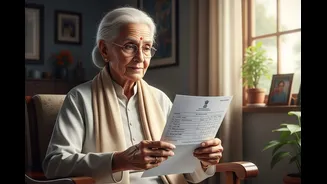After a long wait, the Centre has finally given a reason to cheer to its employees and pensioners by announcing the Terms of Reference (ToR) for the 8th Pay Commission, with a timeline to submit the report
within 18 months.
ToR is a blueprint that helps the committee to carry forward its work by outlining the scope of work and the specific areas where the commission is expected to make recommendations, ranging from basic pay structure, allowances, and pension revisions to retirement benefits and service conditions.
It not only defines the agenda but also sets timelines and expectations.
The Central Pay Commissions are periodically constituted to review various aspects of the emolument structure, retirement benefits, and other service conditions of Central Government employees and pensioners, and to make recommendations on necessary revisions. Typically, the recommendations of each Pay Commission are implemented at intervals of around ten years.
8th Pay Commission Pension Calculator: How Much Hike Can Pensioners Expect?
Pensioners are now looking forward to receiving a good hike in pension in the 8th pay commission. There are a total of 68.72 lakh pensioners as of October 30 across civil, defence, telecommunications, railways, and postal departments, according to the government’s Pensioners’ Portal.
Fitment factor plays a crucial role in factoring out the hike in salaries and pensions. Fitment factor will be confirmed after the Union Cabinet approves the commission’s recommendations.
The fitment factor is a key element used to calculate the salary and pension hikes under a Pay Commission. It acts as a multiplier applied to the basic pay or pension to bring it in line with the revised pay scales.
Several reports suggest that fitment factor for the 8th pay commission may be in the range of 1.86 to 2.57.
Ramachandran Krishnamoorthy, Director – Payroll Services, Nexdigm explains that pensioners will benefit from the same multiplier effect applied to their basic pension. “A retiree currently drawing ₹30,000 basic pension may see it revised to about ₹60,000. The Dearness Relief (DR), which mirrors DA, will also be recalculated. This adjustment aims to maintain parity between serving and retired personnel,” he adds.
Manjeet Singh Patel, National President of the All India NPS Employees Federation, told ET that while the fitment factor is important for determining pension hikes, pensioners also seek resolution of other long-pending issues. He urged the government to reduce the pension commutation period from 15 to 12 years and improve medical support under CGHS, noting that many areas lack empanelled hospitals. Patel added that the current Rs 3,000 monthly medical allowance is inadequate and should be raised to Rs 20,000, with more district-level hospitals brought under CGHS coverage.
8th Pay Commission: When Will It Be Implemented?
Since the Terms of Reference (ToR) for the 8th Central Pay Commission have been notified on October 28, 2025, the panel is expected to submit its report within 18 months — that is, by April 2027.
After submission, the government usually takes around 6 months to review and implement the recommendations. This means the revised pay structure could realistically be implemented by late 2027 or early 2028, though it will take retrospective effect from January 1, 2026.




















